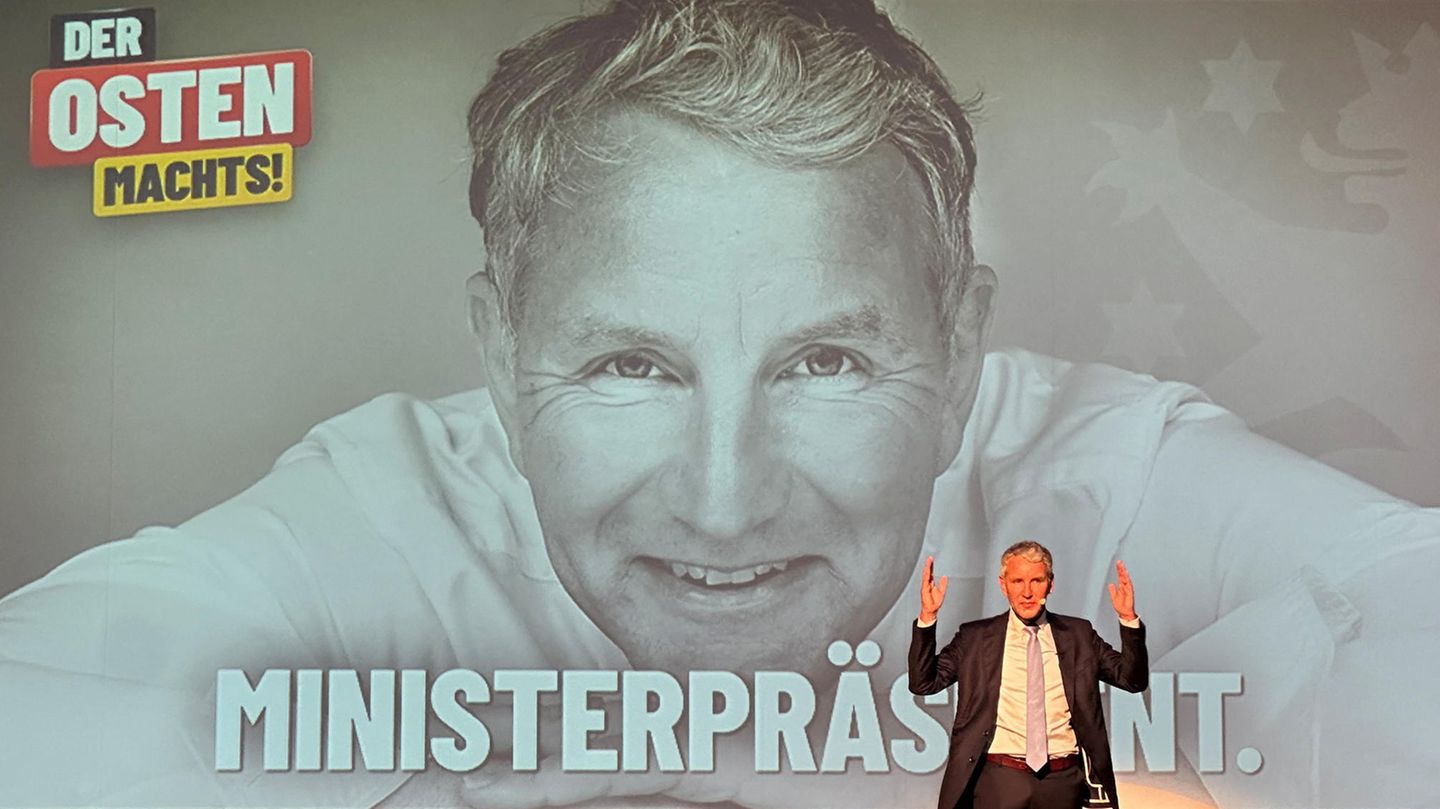Why the AfD likes to speak so incorrectly about “Eastern elections” – even though Saxony, Thuringia and Brandenburg are very different states.
I was in Havelland recently. I wanted to write something about the CDU’s top candidate in Brandenburg, who a few more people now know after he drove around Potsdam drunk on an electric scooter.
It was one of the more pleasant business trips. The sun shone gently over the harvested fields, where bales of straw were neatly lined up. The lake on the edge of the village, which I stopped by between two appointments, was clean and pleasantly warm, at least on the shore. Unfortunately, I hadn’t packed any swimming trunks.
For me, Brandenburg is a land full of pleasant memories. The bike rides through the Uckermark. The hikes around Rheinsberg Castle. The children’s attempts to swim in Schwielowsee. Like Mecklenburg or the Baltic Sea, this beautiful land is the equivalent of a holiday for me.
As I drove through the many quiet villages, it felt like home – and yet at the same time like a foreign place.
© Sascha Fromm
Middle East
stern author Martin Debes reports as a reporter primarily from the five eastern federal states. Every other weekend, the Thuringian native writes here about what he has noticed between Rügen and Rennsteig.
People from Havelland may have a similar experience when they end up in the Thuringian Forest, where I grew up. In the GDR, alternatives abroad were either closed to most people or too expensive.
Why am I telling you this?
Because what happened in one part of Germany for 40 years, and for 34 years since then, has naturally shaped the people who were born there and still live there. Similar attitudes were formed on the basis of similar experiences – and this is the crucial point – similar economic, social and demographic structures.
Forget about new countries. Old kingdoms!
Nevertheless, what is subsumed under East Germany or the East is just one of several. There are several more underneath. For example, Brandenburg: From here the Kingdom of Prussia and finally the Wilhelmine Empire emerged.
Saxony, on the other hand, was an absolutist electorate that ruled over Poland for a time and was eventually allowed to call itself a kingdom. For a long time, Thuringia was a particularly cultural conglomeration of many small duchies, in which not only the SPD was founded, but also the Weimar Republic was established.
But now that these three states, which are not at all new, are voting on their parliaments, the backdrop of the GDR and the transformation period is covering up everything else. The increasingly common term “Eastern elections” is blurring the historical, cultural and geographical diversity, but also a stable difference in political development.
Three countries, three different governing parties
Brandenburg, for example, has only ever had SPD prime ministers. There have only been three. Incumbent Dietmar Woidke, who is running again as the top candidate, has been in office since 2013.
In Saxony, the CDU was the only party in power in the state chancellery. The current Prime Minister, Michael Kretschmer, is only the fourth since 1990 and is also running again.
And Thuringia? After 24 years of CDU rule, Bodo Ramelow has been the only left-wing prime minister since 2014 – and he leads the only minority government.
This is another reason why the term “Eastern elections” is wrong. It reduces everything to an imaginary “former GDR”, which is also a thoughtless, ugly word.
The topic is currently haunting me, which is of course due to the election dates, but also to myself. Finally, I have an answer to the question of why Thuringia is a political specialty. So it’s your own fault.
The longer I think about the alleged and actual Easternness, the more I realize that, as is so often the case, this tiresome debate is about tolerating complexity and allowing differentiation. When the clever sociologist Steffen Mau talks about how we became and that there is such a thing as “ossification,” he is absolutely right.
There is, of course, an East German identity, among many other identities. It was just not forced upon us by the evil West, as Dirk Oschmann believes, but by the reliably unjust events in the world.
The East as communicative feedback
But that doesn’t mean that everything is somehow the same. Yes, the AfD is at least twice as strong in the eastern German states as in the rest of Germany. But this is, among other things, a communicative feedback loop: The reasons for this strength include false generalizations and blanket judgments.
The Left, which used to be called the PDS and even earlier the SED, fed for decades on the “East” feeling and a distorted image of the GDR. Now it is the AfD.
When I cycled to Erfurt Anger this week to hear Björn Höcke’s campaign speech, he, the head of the East from North Rhine-Westphalia, spoke quite naturally about the “Eastern elections” that had to be won. Just as Höcke has long claimed the autumn of 1989 for himself (“Complete the change”), Thuringia serves as a vehicle for his planned seizure of power.
At the stand in front of the AfD stage in Erfurt there was a shiny silver badge that involuntarily reminded me of my pioneering days. It said: “The East is doing it!”
Source: Stern
I have been working in the news industry for over 6 years, first as a reporter and now as an editor. I have covered politics extensively, and my work has appeared in major newspapers and online news outlets around the world. In addition to my writing, I also contribute regularly to 24 Hours World.




